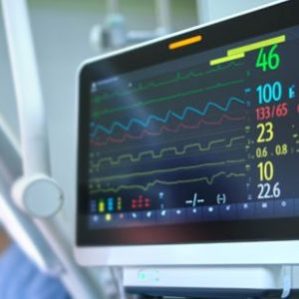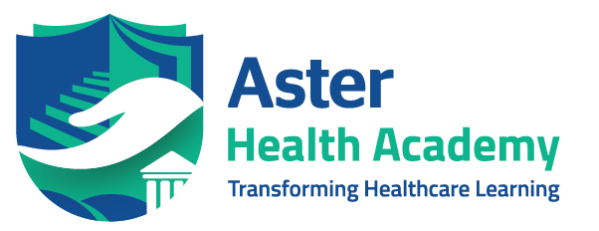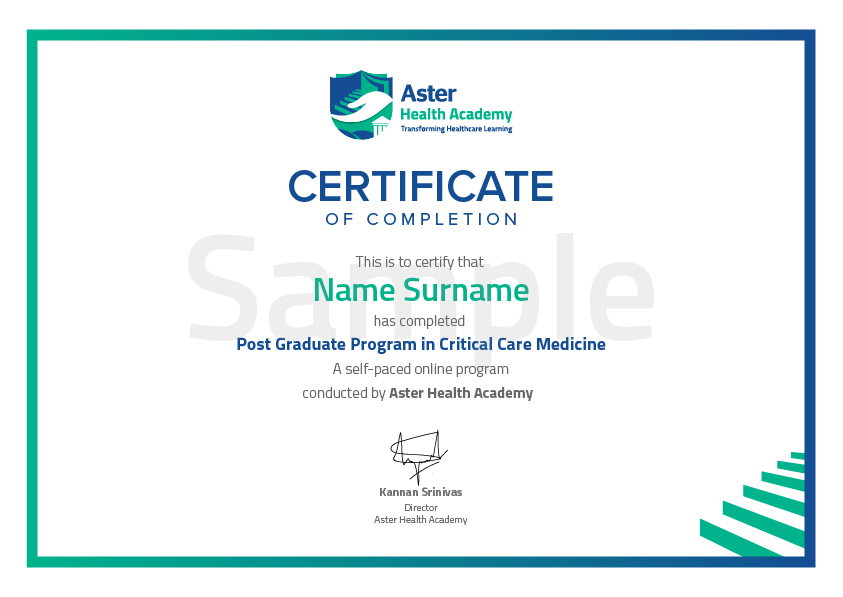
About the course:
Curriculum:
Module 1: Introduction to Critical Care Medicine
Module 2: Basic Life Support (BLS) and Advanced Cardiac Life Support
Module 3: Intensive Care Unit
Module 4: Patient Assessment and Monitoring: Part I
Module 5: Patient Assessment and Monitoring: Part II
Module 6: Mechanical Ventilation
Module 7: Cardiovascular Management of Critically ill Patients
Module 8: Respiratory System
Module 9: Nervous System
Module 10: Renal & genitourinary system
Module 11: Blood and Circulation
Module 12: Preventive Practices in Critical Care
Knowledge Partner:
Sample Certificate:
FAQ:
Curriculum:
Module 1: Introduction to Critical Care Medicine
Module 2: Basic Life Support (BLS) and Advanced Cardiac Life Support
Module 3: Intensive Care Unit
Module 4: Patient Assessment and Monitoring: Part I
Module 5: Patient Assessment and Monitoring: Part II
Module 6: Mechanical Ventilation
Module 7: Cardiovascular Management of Critically ill Patients
Module 8: Respiratory System
Module 9: Nervous System
Module 10: Renal & genitourinary system
Module 11: Blood and Circulation
Module 12: Preventive Practices in Critical Care


